Introduction
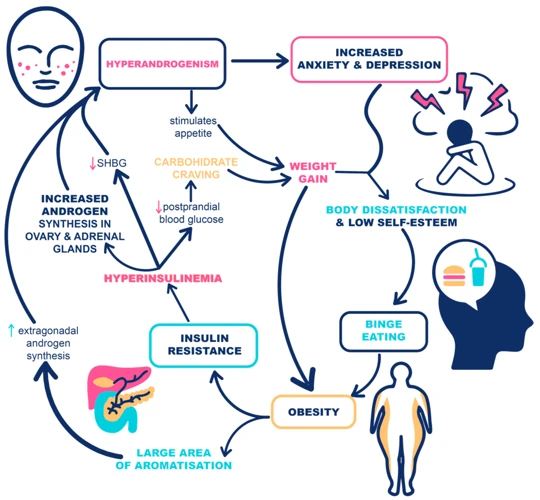
The struggle with overeating can be difficult to manage, especially in social settings. It can be challenging to resist the temptation of indulging in unhealthy foods while surrounded by friends and family. It’s easy to get caught up in the moment and forget about your goals of eating healthily. However, there are strategies and techniques that you can use to overcome social triggers for overeating. In this article, we’ll discuss five tips that can help you stay on track and make healthier choices while in social situations. These tips include being mindful and planning ahead, choosing healthy options, saying no politely, avoiding trigger foods, and finding support and accountability. By implementing these strategies, you can regain control over your eating habits and improve your overall health and well-being.
Why You Overeat in Social Situations
Social situations can be challenging when it comes to maintaining a healthy diet. It’s easy to fall into the trap of overeating without even realizing it. There are a few reasons why this happens:
- Social norms: When surrounded by friends or family, there may be a subconscious pressure to eat as much as everyone else. This can lead to overeating even when you’re not hungry.
- Emotional eating: When feeling anxious or stressed in social situations, food can become a source of comfort. This is known as emotional eating and can cause overeating.
- Lots of food choices: Social events or parties usually offer a wide variety of food options, making it difficult to choose healthy options. The abundance of tempting and indulgent foods can lead to overconsumption.
Recognizing why you overeat in social situations is the first step in preventing it from happening. By being aware of these triggers, you can take proactive steps to avoid them and maintain a healthy diet.
Tip 1: Be Mindful and Plan Ahead
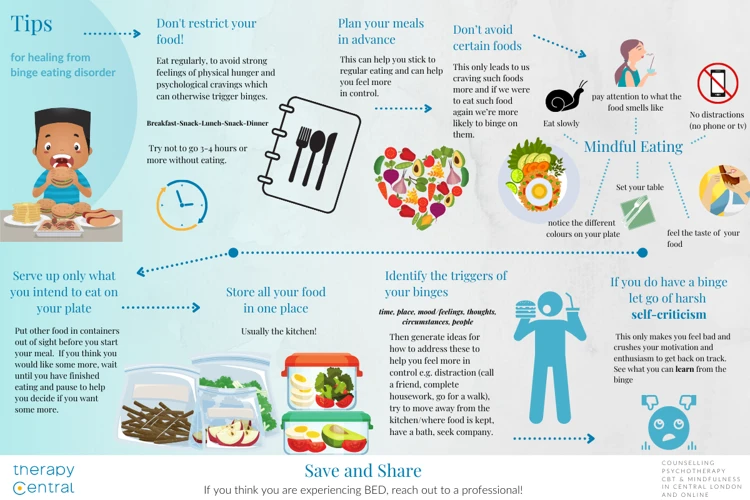
In order to overcome social triggers that lead to overeating, it’s important to be mindful and plan ahead. This involves taking a moment to consider your food choices before entering a social situation, and having a plan in place to stick to healthy options. Being mindful throughout the event can also help to prevent mindless snacking and overindulging. Let’s explore why being mindful and planning ahead is crucial and how you can implement these tips into your own life.
Why Being Mindful Helps
Being mindful helps you stay present and aware of your actions and decisions, especially when it comes to food choices. When you’re engaging in social situations, being mindful can help you overcome social triggers that lead to overeating. Here are some reasons why being mindful is important:
- It helps you recognize your hunger cues: In social situations, we tend to eat based on external cues like what others are eating or what’s available, rather than listening to our own hunger cues. Being mindful helps you tune in to your own body and recognize when you’re truly hungry or when you’re full.
- It reduces stress: Social situations can be stressful, and stress can trigger emotional overeating. Being mindful helps you stay grounded and reduce stress levels, which can lead to healthier choices.
- It helps you make conscious food choices: Mindfulness allows you to make more conscious and intentional food choices, rather than mindlessly eating whatever’s available. This can help you choose healthier options and avoid overeating.
- It improves digestion: When you’re mindful while eating, you’ll chew your food more thoroughly and take your time, which helps improve digestion and prevents overeating.
- It promotes self-awareness: Being mindful helps you become more self-aware of your thoughts, feelings, and behaviors. This can help you recognize triggers for overeating and develop strategies to overcome them.
Incorporating mindfulness into your social interactions around food can help you overcome social triggers for overeating and make healthier choices.
How to Plan Ahead
When it comes to planning ahead to avoid overeating in social situations, there are a few strategies you can use. These include:
| Strategy | Description |
| 1. Bring your own healthy dish | If you’re going to a potluck or gathering where food will be served, prepare a healthy dish to bring with you. This way, you’ll know there will be at least one option that fits within your dietary goals. |
| 2. Eat a healthy meal before you go | If you know you’ll be going to a party or gathering where unhealthy food will be served, eat a healthy meal at home before you leave. This will help you feel full and satisfied, so you’ll be less likely to overeat later. |
| 3. Research the menu ahead of time | If you’re going out to eat at a restaurant, look up the menu online ahead of time. This way, you can plan what you’re going to order and make healthier choices before you’re faced with the temptation of an unhealthy menu item. |
| 4. Set a realistic goal | If you know you’ll be attending an event with lots of tempting food, set a realistic goal for yourself ahead of time. This could be something like only having one dessert, or limiting yourself to one plate of food. By setting a goal ahead of time, you’ll be more likely to stick to it and avoid overeating. |
| 5. Practice mindful eating | Focus on the taste and texture of your food, and chew each bite slowly. By eating mindfully, you’ll be more aware of when you’re feeling full and satisfied, which can help you avoid overeating. |
By planning ahead and using these strategies, you’ll be better equipped to make healthy choices in social situations and avoid overeating.
Tip 2: Choose Healthy Options
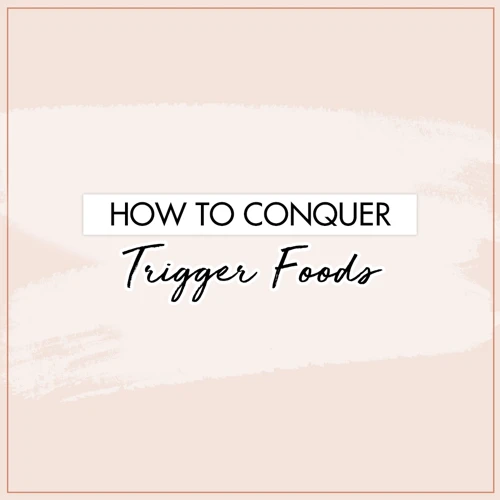
When attending social events, it’s easy to get caught up in the excitement and indulgence of delicious, often unhealthy foods. However, making mindful choices and selecting healthier options can make a big difference in avoiding overeating. By adopting the following tips, you can choose healthier options at social gatherings and feel good about your food choices.
Why Choosing Healthy Options is Important
Making a conscious effort to choose healthy food options while in social situations can have a significant impact on your overall health and well-being. There are several reasons why it’s important to choose healthy food options:
| Reasons Why Choosing Healthy Options is Important |
|---|
| 1. Maintains a balanced diet: Choosing healthy options ensures that you are getting all the necessary nutrients your body needs to function properly. |
| 2. Reduces calorie intake: By choosing healthy options, you are reducing the number of calories you consume, which can help you maintain a healthy weight. |
| 3. Increases energy levels: Healthy food options provide your body with the necessary fuel to keep your energy levels up, leading to increased productivity and overall well-being. |
| 4. Improves digestion: Choosing healthy food options can improve your digestion, leading to a healthier gastrointestinal system and reduced risk of related health problems. |
| 5. Decreases the risk of chronic health conditions: A diet rich in healthy food options can help reduce the risk of chronic health conditions such as heart disease, diabetes and certain types of cancer. |
Choosing healthy food options while in social situations can have a significant impact on your health and well-being. It’s important to make a conscious effort to make healthy choices to maintain a balanced diet, reduce calorie intake, increase energy levels, improve digestion, and decrease the risk of chronic health conditions.
How to Choose Healthy Options
When it comes to choosing healthy options in social situations, it can be challenging. However, with a little bit of preparation and mindfulness, you can make smart choices that will benefit both your health and your social experience. Here are some tips on how to choose healthy options:
- Scan the menu beforehand: Before going out to eat, do some research on the restaurant and scan the menu. Look for dishes that are prepared with healthy cooking methods (such as grilled, baked or steamed), and that include lots of veggies and lean protein.
- Choose colorful meals: When looking at menu options, aim for bright and colorful meals that are rich in nutrients. Vegetables and fruits of different colors provide a range of vitamins and minerals, so choose a dish with a variety of colors.
- Control portion size: One way to control overeating is to pay attention to your portion sizes. Most restaurants serve oversized portions, so consider sharing a dish with someone else or asking for a to-go box at the beginning of the meal to prevent overeating.
- Avoid fried or breaded foods: These types of foods can be high in calories and unhealthy fats. Opt for grilled, baked or roasted dishes instead.
- Stick to water or unsweetened drinks: Drinking sugary or alcoholic beverages can quickly add up in calories. Drinking water or unsweetened drinks can help you stay hydrated and avoid excess calories.
- Avoid sauces and dressings: Sauces and dressings can be high in calories and unhealthy fats. Consider asking for the sauce or dressing on the side, or skipping it altogether.
By keeping these tips in mind and making conscious choices, you can choose healthy options that will support your health goals and allow you to enjoy social situations while feeling your best.
Tip 3: Practice Saying No Politely
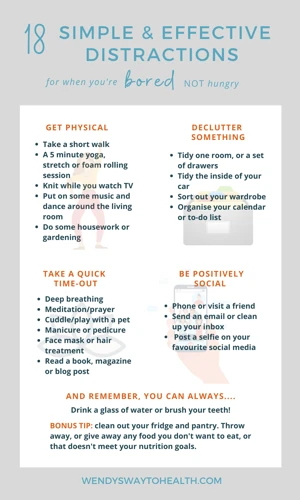
Have you ever found yourself mindlessly accepting second helpings or dessert when you didn’t really want it, just because it was offered in a social situation? Saying “no” can be tough, especially when you don’t want to seem rude or ungrateful. But learning how to politely decline unwanted food offerings is an important skill in overcoming social triggers for overeating. In this section, we’ll explore why saying no politely is effective, and provide tips for how to do it with grace and confidence.
Why Saying No Politely is Effective
Politely saying no is an effective way of avoiding social triggers for overeating. This approach helps you maintain your boundaries without offending others. Here are some reasons why this strategy is effective:
| 1. Reduces Pressure | Politely saying no reduces pressure and takes the focus off of you. People are less likely to continue pressuring you when you hold your ground firmly but respectfully. |
| 2. Shows Self-Respect | Saying no politely shows that you respect yourself and your body. Being confident in your decision to say no can also inspire others to make healthier choices. |
| 3. Maintains Control | Politely saying no helps you maintain control over your food choices. It’s important to remember that you have the power to make your own decisions, regardless of what others may pressure you to do. |
| 4. Sets Clear Boundaries | Politely saying no sets clear boundaries for yourself and others. It establishes that you are serious about your health goals and are willing to prioritize them over social pressure. |
| 5. Decreases Guilt and Regret | By politely saying no to unhealthy food options, you decrease your chances of experiencing guilt and regret after overeating. These negative feelings can trigger further unhealthy eating habits and set you back on your health journey. |
Politely saying no is a powerful tool for overcoming social triggers for overeating. It helps you maintain control, set boundaries, and prioritize your health goals while still being respectful to others.
How to Say No Politely
Politeness is key when it comes to declining food in social situations. Here are some phrases you can use to say no politely:
- “No, thank you.” This is a simple and direct way to decline an offer of food, while still being polite. It’s always best to say “thank you” to acknowledge the offer, even if you’re declining it.
- “I’m good for now, but thank you.” This is another way to politely decline an offer of food. By using the phrase “for now,” you’re indicating that you might be interested in eating later, but you’re not hungry at the moment.
- “I appreciate the offer, but I’m trying to be mindful of what I eat.” This is a great way to decline an offer of food while still acknowledging the hospitality of your host. By explaining that you’re being mindful of what you eat, you’re showing that you have your own health in mind.
- “That looks delicious, but I’m going to pass.” This is a good way to compliment the food, while still declining. By saying “I’m going to pass,” you’re indicating that you won’t be eating the food.
- “I’m allergic to that food, but thank you.” If you have a legitimate food allergy, this is a great way to decline an offer of food while still being polite. It’s always best to be honest about your allergies to avoid any confusion or health complications.
Remember to always say these phrases with a smile and kind demeanor. Your hosts will appreciate the graciousness and politeness, even if you decline their offer of food.
Tip 4: Avoid Trigger Foods
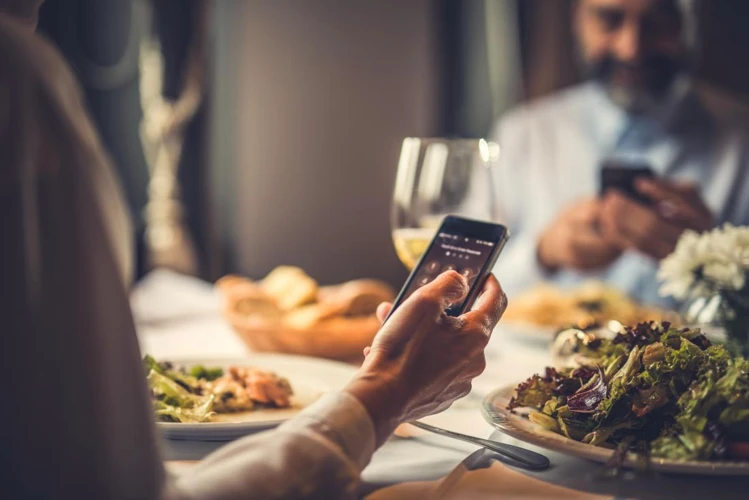
One of the biggest obstacles to healthy eating is the temptation to indulge in trigger foods. These are the foods that we simply cannot resist, even though we know they are bad for us. The problem is particularly acute in social situations, where we may feel pressured to indulge or feel too embarrassed to say no. In this section, we will explore why trigger foods are so dangerous and how you can avoid them to stay on track with your healthy eating habits.
Why Trigger Foods are Dangerous
Foods that we label as “trigger” foods can lead to uncontrollable overeating. These foods are usually high in calories, sugar, and fat, and are often highly processed. They are often your favorite indulgences, which make them hard to avoid once you start eating them. Trigger foods can include sweets, chips, fast foods, and other processed foods.
The danger of these foods lies in the way they affect our brain’s reward system. When we eat high-calorie, high-sugar, high-fat foods, our bodies release feel-good chemicals such as dopamine. These chemicals create a temporary high or pleasure response in the brain, leading to a rewarding sensation. This temporary pleasure reinforces our desire to consume the food again, leading to overeating and feelings of guilt or shame afterwards.
Trigger foods can also lead to a negative cycle of cravings and binges. When we consume these foods, our blood sugar levels spike, followed by a sharp crash. This can make us feel hungry and unsatisfied, leading to further cravings for more trigger foods. This cycle can be hard to break, making it easier to overeat and negatively impact our health and well-being.
To avoid falling into the trap of consuming trigger foods, it’s essential to identify them and try to limit or cut them out of your diet. By substituting these foods with healthier options and practicing mindfulness, you can break the cycle and start making healthier choices for your body and mind.
| Reasons Why Trigger Foods are Dangerous |
|---|
| Affect on Brain’s Reward System: Trigger foods can lead to overeating due to the release of feel-good chemicals in the brain such as dopamine, leading to a rewarding sensation. |
| Negative Cycle of Cravings: Consuming trigger foods can lead to a cycle of cravings and binges due to a spike in blood sugar levels followed by a sharp crash, causing hunger and further cravings for trigger foods. |
| Potential for Unhealthy Eating Patterns: Overconsumption of trigger foods can lead to weight gain, increased risk of chronic diseases such as diabetes and heart disease, and negatively impact overall health and well-being. |
| Psychological Effects: Overeating trigger foods can lead to feelings of guilt or shame, affecting our mental health and potentially reinforcing unhealthy eating patterns. |
How to Avoid Trigger Foods
Avoiding trigger foods can be challenging, but it’s an important step in overcoming social triggers for overeating. Here are some tips on how to avoid trigger foods:
- Clean out your pantry: Get rid of any trigger foods that you have at home. This will help eliminate temptation and make it easier to stick to your healthy eating habits.
- Avoid grocery shopping while hungry: When you’re hungry, you’re more likely to make impulsive decisions and buy foods that you normally wouldn’t. Plan your grocery trips after a meal or snack to make better choices.
- Make a list: Plan your meals for the week and make a list of the ingredients you need. Stick to your list and avoid buying any foods that could trigger overeating.
- Choose restaurants carefully: If you’re eating out with friends, research the menu beforehand and choose a restaurant that offers healthy options. This will make it easier to avoid trigger foods that may be on the menu.
- Practice portion control: If you do decide to indulge in a trigger food, practice portion control. Use a smaller plate or measure out a serving size to avoid overeating.
By taking these steps to avoid trigger foods, you’ll be setting yourself up for success in overcoming social triggers for overeating. Remember, progress takes time and effort, but by making small changes and consistently sticking to healthy habits, you can overcome overeating in social situations.
Tip 5: Find Support and Accountability
As social creatures, we often look to others for validation and support. This can be especially helpful when trying to overcome social triggers for overeating. Surrounding yourself with individuals who share your goals and struggles can provide the necessary accountability and encouragement to stick with healthy habits. Tip 5 involves finding such support and accountability, which can be a game-changer in your journey towards a healthier lifestyle. Let’s explore why having a support system is crucial, and how you can go about finding one.
Why Having Support is Crucial
Having support is crucial for overcoming social triggers that lead to overeating. When we’re surrounded by people who are also making healthy choices, it’s easier for us to do the same. Support can come from many different sources, including friends, family, coworkers, or even online communities.
Table: Benefits of having support in overcoming social triggers for overeating
| Benefit | Description |
|---|---|
| Encouragement | Having someone to cheer you on can help you stay motivated and on track with your healthy habits. |
| Accountability | Knowing that someone else is counting on you to make healthy choices can make it easier to stick to your goals. |
| Shared experiences | Sharing your struggles and successes with someone who has gone through similar experiences can make you feel less alone and more supported. |
| Knowledge and advice | Having someone who is knowledgeable about healthy eating and nutrition can provide valuable guidance and advice. |
| Positive reinforcement | Receiving positive feedback and recognition for your healthy choices can reinforce your behavior and make it more likely for you to continue making good choices. |
Having support can make a significant difference in our ability to overcome social triggers and stick to our healthy eating goals. Whether it’s through a formal support group or simply having a friend or family member who is willing to offer encouragement and accountability, finding ways to connect with others can help us stay on track with our health and wellness goals.
How to Find Support and Accountability
Finding support and accountability can greatly aid in overcoming social triggers for overeating. Here are some ways to go about it:
| 1. Join a support group: | There are many support groups for overeating that can be found online or in person. Joining one can help you connect with others who are going through similar struggles and provide motivation and encouragement. |
| 2. Enlist a friend or family member: | Share your goals and struggles with a friend or family member who can help provide support and hold you accountable. Just make sure it’s someone you trust and who won’t sabotage your efforts. |
| 3. Consider a professional: | Therapists, dietitians, and other health professionals can provide additional support and guidance in overcoming overeating triggers. They can also help address any underlying emotional or mental health issues related to overeating. |
| 4. Use technology: | There are many apps and online tools that can help with tracking food intake, setting goals, and connecting with others for support and motivation. Find one that fits your needs and preferences. |
Remember, finding support and accountability is not a sign of weakness but rather a strong indicator of a commitment to making positive changes.
Conclusion
In conclusion, navigating social situations can be difficult, especially when it comes to overeating. However, with the right techniques and mindset, it is possible to both enjoy social events and maintain healthy eating habits. It’s important to be mindful and plan ahead, as well as choose healthy options and politely decline temptations. Avoiding trigger foods and finding support can also make a significant difference. Remember, the journey towards overcoming social triggers for overeating is a process and may take time, but incorporating these tips and making them a part of your lifestyle can lead to long-term success. So start implementing them today and be proud of yourself for taking control of your eating habits!
Frequently Asked Questions
What are some common social triggers for overeating?
Common social triggers for overeating could include large portions, multiple courses, peer pressure, emotional eating, and mindless snacking while socializing.
How can mindfulness help me avoid overeating in social situations?
Mindfulness can help you avoid overeating in social situations by helping you focus on the present moment, stay in touch with your feelings of hunger, and make more conscious choices about what and how much you eat.
What are some benefits of planning ahead to avoid overeating in social situations?
By planning ahead, you can control your environment, make healthier choices, and avoid overindulging in trigger foods. This can help you stay on track with your health and nutrition goals.
What are some examples of healthy foods I can choose in social situations?
You can opt for healthier choices like salads, grilled or baked options, lean protein, fruits and vegetables, and whole grains. Avoid fried or greasy foods, creamy sauces, and sugary drinks.
Why is it important to learn how to say no politely in social situations?
Saying no politely can help you set boundaries, stay true to your goals, and avoid peer pressure. It can also communicate your needs effectively and help you maintain positive relationships.
What are some strategies for avoiding trigger foods in social situations?
You can avoid trigger foods by scanning menus ahead of time, creating a plan, and making healthier substitutions. You can also eat a healthy snack before the event to avoid overindulging on unhealthy options.
What are some benefits of finding support and accountability in your journey to overcome social triggers for overeating?
Having support and accountability can help you stay motivated, share resources, and get feedback from like-minded individuals. It can also help you feel more connected and less isolated in your journey towards healthier habits.
What are some ways I can find support and accountability in my journey to overcome social triggers for overeating?
You can join support groups, find an accountability partner, or work with a healthcare professional to get personalized guidance and support. You can also use online resources and social media to connect with others who share similar goals and challenges.
How can emotional eating impact my relationship with food?
Emotional eating can lead to a negative relationship with food, where you may rely on it for comfort, stress relief, or distraction. This can undermine your overall health and well-being, and make it harder to enjoy food as a source of nourishment and pleasure.
Can I still enjoy social situations and food while managing social triggers for overeating?
Absolutely! By following the tips outlined in this article, you can learn how to choose healthier options, set boundaries, and enjoy social situations and food in a more mindful and balanced way. Remember, balance, not perfection, is key to maintaining a healthy relationship with food and socializing.







